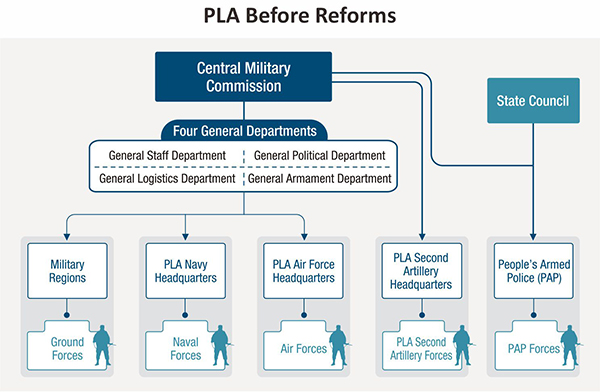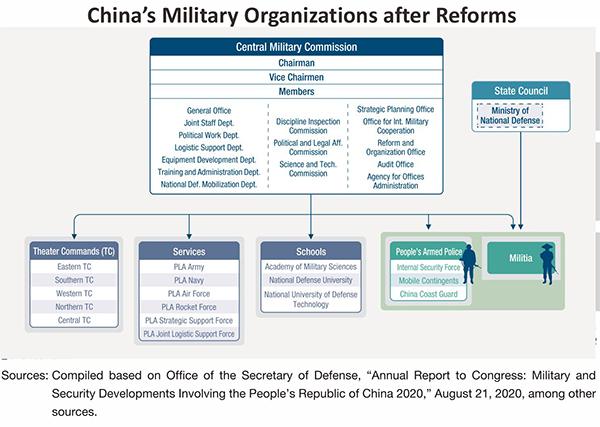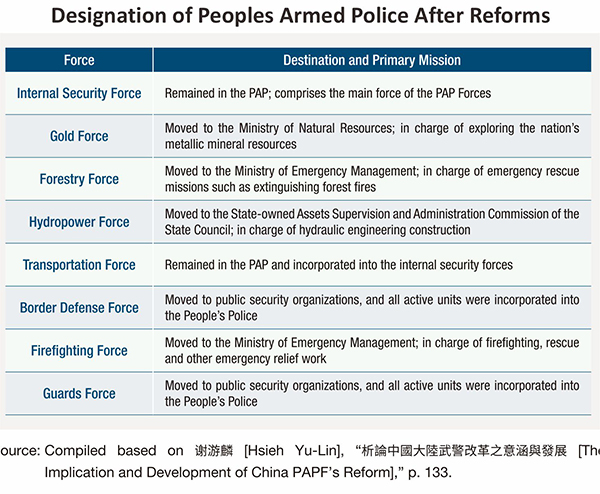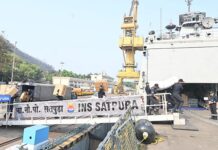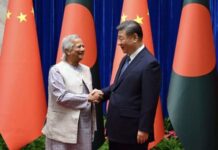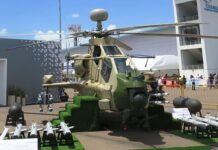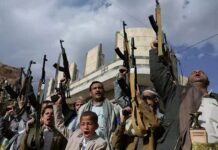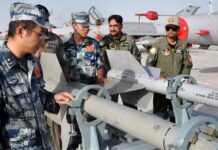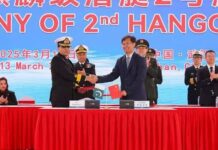Basic Structure Prior to the Reforms
The PLA is the Party’s army. In China, the most important mission of the army is to bring and keep the Chinese Communist Party (CCP) in power. Conversely, ensuring the military’s loyalty to the Party is an indispensable guarantee for the CCP to stay in power.
Prior to Xi Jinping’s military reforms, the basic mechanisms by which the Party exercised control over the military consisted of the following components.
First, the chairman of the Central Military Commission (CMC) continued to be a key post held by the Party’s supreme leader. Following Jiang Zemin’s rule, the Party secretary concurrently served as president of the People’s Republic of China (PRC) and CMC chairman in order to concentrate a high degree of power in the secretary.
The second component was the existence of three systems:
The General Political Department system
The PLA Party committee system
The political commissar system.
The General Political Department, which was in charge of political work, was established as the single agency responsible for Party-related activities and political work in the PLA. Until the military reforms, the political work carried out by political organs consisted primarily of:
• Ensuring implementation of the Party’s guidelines, policies, state laws, and the CMC’s directives and orders and steering ideologies in the military;
• Managing organizations;
• Cadre administration;
• Security and military justice work;
• Propaganda and cultural activities;
• Discipline inspection;
• Mass work (building relationships with the masses);
• Liaison work (intelligence and collusion with the adversary).
Party Committees in the military are responsible for decision making in military organizations. Political commissars have the same rank as military commanders and have engaged in decision making as secretaries of PLA Party committees. Military organizations were designed to have a dual leadership system, comprised of military commanders and political commissars under the command of Party committees.
Political Commissars were mainly responsible for ideological education and management of units, enforcement of military regulations, cadre work under the command of Party committees, and security. That is, ideological indoctrination, personnel and organization management, and inspections were carried out as political work to ensure that the Party had command of the military.
Issues Affected
A number of problems had beset Party-Army relations as of the start of Xi Jinping’s regime.
• CMC chairman had become a position merely in name.
• The mid-level organizations held power, with the four general departments (General Staff Department, General Political Department, General Logistics Department, and General Armament Department) seizing most of the actual functions of the military. In particular, the General Political Department had internalized the functions related to military inspection, such as disciplinary inspection, safety, court procedure, and prosecution, and this created various problems. The PLA’s nature as the Party’s army had the potential of obstructing efficient execu- tion of operations.
• Problem of bribery and corruption.
• Slackening of ideology and discipline due to social pluralization and lack of war experience.
• Concern over U.S. ideological penetration.
For these reasons, organizational reform of Party-Army relations was essential for solving the problems with political control over the military. It was also inevitable for building an army that is capable of winning wars.
Reforms Introduced
In carrying out the most sweeping military reforms since the PRC’s founding, President Xi Jinping has focused on strengthening the Party’s leadership over the military through:
(1) Reestablishment of the CMC Chairman Responsibility System. In November 2012, shortly after he was appointed general secretary of the CCP and CMC chairman, Xi Jinping revised the “Regulations on Central Military Commission Work” so that the CMC chairman responsibility system was specified. The 19th CCP National Congress in 2017 marked the establishment of the CMC chairman responsibility system, and the system was written into the revised Party charter (constitution).
(2) Emphasis on the Leadership of Party Committees. Xi Jinping values the leadership of Party committees in the military and highlights the need to build Party cells in the military. When Xi attended the CMC Party Building Conference in August 2018, he stressed the significance of building Party cells in the military, especially Party committees in the military. Xi reaffirmed that the PLA’s dual leadership system under the command of Party committees would be maintained, and that “All work will be conducted under the unified leadership of Party Committees, and all important issues will be studied and decided by Party committees.” At the same time, for improving combat capability, Xi stated that Party committees in the military would focus on the main responsibilities and tasks of war preparation and war execution.
Xi argued that by enhancing the Party’s leadership, organizational, and executive capabilities, the Party’s political and organizational superiority can be converted into warfare superiority. In particular, he underscored the importance and significant responsibility of high-level Party committees at or above the corps level, and
Xi Jinping talked about problems with Party building in the military, which he referred to as the “seven weakenings.” They are:
• The weakening of political awareness and political capability;
• The weakening of centralized and unified leadership by Party committees;
• The weakening of leadership over war preparations and war execution;
• The weakening of the principles and combat capability of Party cells;
• The weakening of management of Party cadres and personnel;
• The weakening of revolutionary will and combat spirit; and
• The weakening of responsibility for implementing Party management and Party governance.
(3) Independent Inspection Departments in the Military. Xi Jinping seeks to promote governance in the military and give power to inspection departments to strengthen objective control. He calls this the “fundamental transformation of the military governance system.” Under the previous four general department system, all inspection departments, such as discipline, law, and financial management, were placed in the General Political Department and were unable to exercise independent inspection capabilities. As part of the military reforms, efforts were made to enhance the inspections.
In February 2015, the CMC issued the “Decision on Deeply Promoting Law-based Governance of the Military and Strict Enforcement of Discipline in the New Situation.” These refer to the goal of achieving stable governance in the military through the strict application of law and Party discipline.
Organizational reforms were undertaken to effectively promote governance. That is, as part of the reforms of national defense and the armed forces, inspection departments that had been internalized by the four general departments were given independent status. With the dismantling of the four general departments, the CMC Discipline Inspection Commission, the CMC Political and Legal Affairs Commission, and the CMC Audit Office were established in the CMC.
The CMC Discipline Inspection Commission, which became independent by the reorganization in 2016, sent 10 inspection teams to 15 CMC departments and to each theater command for the first time since the PLA’s founding and began inspection activities. The inspections focused on:
• The implementation status of directives to develop and bolster the Party’s ways and attitude (verify problems, such as not doing even when ordered to, not stopping even when prohibited, not fully adhering to regulations, implementing selectively, and allowing for flexibility);
• The integrity of cadres;
• Compliance with regulations on encouraging saving and opposing wasteful spending; and
• Supervision over the management and use of official military vehicles. Other efforts to strengthen the discipline inspection system include establishing a discipline inspection commission in each military service and branch, as well as having a full-time secretary of the discipline inspection commission, which used to be a concurrent position with deputy member of the Poltburo.
At the theater command level, a dispatch mechanism has been established. This is not an internal mechanism in the theater command but a dispatch mechanism of the CMC Discipline Inspection Commission. Responsibility for discipline inspection lies with the central state, not the theatre command. The “Regulations on Discipline Inspection,” revised in March 2018, lists 10 categories of discipline inspections, namely, political discipline, organizational discipline, operational discipline (obedience to orders and commands), training discipline (supervision of training), work discipline, safety discipline, integrity discipline, financial discipline, mass discipline (attitude toward civilians), and life discipline. As the above indicates, discipline inspections are not limited to political loyalty and are highly broad in scope, extending to operations and training.
Training inspection, too, is being strengthened. In building an armed forces capable of winning wars, it is important to standardize training and acquire capabilities as intended by the central state.
In this context, supervision of training has been enhanced, including enacting regulations on training inspections. While the CMC Training and Administration Department oversees the training inspections, actual inspections are carried out also by the CMC Joint Staff Department, the CMC Discipline Inspection Commission, and the CMC Agency for Offices Administration, with the Training and Administration Department playing a central role. As this fact reveals, the CMC Discipline Inspection Commission is engaged in training and operations as well.
In comparison, the CMC Political and Legal Affairs Commission underwent a more subtle transition. In 1982, the Political and Legal Affairs Leading Small Group was established in the General Political Department. This became an all-military political and legal affairs commission in 2007, but it remained under the jurisdiction of the four general departments. Although the reorganization in 2016 gave it independent status as the CMC Political and Legal Affairs Commission, its authority is considered weaker than that of the CMC Discipline Inspection Commission.
(4) Introduction of a Patrol System. The CCP further seeks to strengthen its direct monitoring of organizations and regions by introducing a patrol system. The PLA enacted the “Regulations on Patrol Work” in January 2018. According to the regulations, patrol work is mainly conducted to monitor the discipline of high-level Party committees in the military. At the central state level, the CMC Patrol Work Leading Small Group was established to lead the patrol work. The CMC vice chairman is the head of the small group, the secretary of the CMC Discipline Inspection Commission is the managing deputy head, and the director of the Political Work Department and the secretary of the Political and Legal Affairs Commission are the deputy heads. An administrative organization is established in the CMC Discipline Inspection Commission. The patrols cover the Party committees of CMC departments, theater commands, military services and branches, the National Defense University, the Academy of Military Sciences, and the People’s Armed Police (PAP). Furthermore, a Patrol Work Leading Small Group is established in the military services and branches and the PAP. The patrol system is headed by the leader of the Party committee in the military, and the secretary of the Discipline Inspection Commission is responsible for the implementation work.
The purpose of the patrol inspections is fourfold:
• Supervising and giving guidance on the implementation status of theoretical armament and real combat training under the leadership of Party cells, measurement of their effectiveness, and whether Party cells and cadres are supporting the core (Xi Jinping) and adhering to the Party’s command;
• Supervising whether Party cells are taking proactive responsibility in promoting war preparation and war execution, and supervising measurements of the actual effectiveness of the training and units’ fulfillment of combat capability standards;
• Understanding and resolving small issues, such as what officers and soldiers are opposed to and what they consider as hardships, and what the focus of their patrol inspections is; and
• Training the substratum Party cells and cadres through the process of patrol inspections.
• Reduced Role of the Political Work Department. The CMC Political Work Department, which took over the main activities of the General Political Department, has reduced its authority and role considerably. First, as mentioned above, the Discipline Inspection Commission and the Political and Legal Affairs Commission in the military were given independent status. In addition, it was stipulated that the ultimate responsibility for political work rested with the CMC, and the Political Work Department was positioned as an enforcement body.
Furthermore, it appears that the political work organization at the theater command level has reduced functions. Military regions prior to the reforms had a political department staffed by a full- time director. In the post-reform theater commands, while a political work department is established, its director is no longer a full-time post, with a deputy member of the Politburo dual hatting as the director.
In addition, as mentioned above, the leadership of the Party committees at each level over the political work organs of the same level has been strengthened. It likely signifies weakening coordination between the upper and lower-level political work organs. This is because the authority of the same-level Party committees is currently being increased, whereas in the past the General Political Department had strong leadership power over lower-level political work organs.
Implications of Tightening Party Control
What are the implications of this tightening of Party control over the military for China’s external activities? First, this tightening of Party control seems to be a vital means of reforming the military and creating an armed forces capable of conducting joint operations and fighting. It is very difficult for military organizations to carry out reform on their own. Especially for an organization like the PLA with rampant bribery and corruption, this requires powerful external intervention, which Xi Jinping is attempting to achieve by bolstering the Party’s leadership.
Also of note is that strengthening the Party’s leadership offers a means of enabling coordination between the military and other organizations. Such strengthening of the Party’s leadership is essential for understanding China’s activities in the maritime gray zone and in the psychological and cognitive domain.
This report has examined the relationship between military organizational reforms and struggles using non-military means. A number of conclusions can be drawn from the analysis.
First, Xi Jinping’s military reforms drove the restructuring of Chinese military organizations and strengthened the Party’s leadership over them. Previously, the Party controlled the military mainly through political work organizations and political commissars in the People’s Liberation Army (PLA).
Today, more emphasis is placed on direct control by the Chinese Communist Party (CCP). Focus is on especially the implementation of the Central Military Commission’s chairman responsibility system and the Party committees in the military. Furthermore, military governance through laws and rules is underscored. The Party’s leadership has been reinforced not only over the PLA but also over other military organizations, and mechanisms are being developed for coordination between the military and other governmental actors. These measures were developed also as a response to modern forms of conflict that actively use non-military means.
The People’s Armed Police (PAP) and its subordinate China Coast Guard (CCG) has been restructured. The PAP has been reorganized to specialize in maintaining public security in peacetime and easily contribute to PLA joint operations in a contingency. The reorganization was intended to strip the state of its armed forces and reassign them under the CCP.
The cooperation relationship between the military and other Party governmental organizations is not all that clear. In reality, the Party, the government, and the military may not necessarily be conducting activities in an integrated manner under a consistent system of command. Instead, each actor may be operating under the overarching policies of the Party.
What stands out is that :
• The Party’s leadership is critical to China’s external actions. The Xi Jinping regime strengthened the Party’s leadership in all domains as well as over the organizations engaged in external actions including the military. This is considered not only necessary for maintaining the Party’s rule but also for implementing more strategic external actions. By strengthening the Party’s leadership, the Xi regime succeeded in easing to some extent the problem of “fragmented authoritarianism.”
• What problems and weaknesses face China’s use of non-military means? China has strengthened the Party’s leadership over the military and governmental agencies and developed coordination mechanisms. However, they will not function if the Party itself weakens or falls into chaos. In this sense, the CCP can be both a major strength and a weakness for China’s external actions. There is also no robust mechanism to correct any misjudgments that the CCP might make. Information that goes against the will of the Party is not reported precisely because the Party’s leadership has been strengthened.
Based on the NIDS China Security Report 2023 – China’s Quest for Control of the Cognitive Domain and Gray Zone Situations


